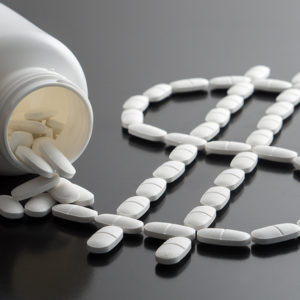There is exactly one reason drug companies set prices so outrageously high: because they can.
High pharmaceutical prices have nothing to do with the (very modest) cost of manufacturing drugs and very little do with the more substantial cost of research and development.
No, the problem is that Big Pharma’s business model is price gouging. The industry exercises its political power to obtain government-granted patent monopolies and other exclusivities, and then charges as much as it possibly can.
Individual patients have no bargaining power against Big Pharma: We pay what they demand, or we go without.
Insurers have some modest negotiating power because they can refuse to cover drugs that they deem to be too expensive.
There is one insurer that could meaningfully curtail outrageous drug prices: Medicare. Medicare Part D spends about $100 billion annually on drugs, more than a fifth of the $480 billion that the United States spends on drugs.
By law, however, Medicare Part D is prohibited from negotiating drug prices. The result: Medicare Part D — and the patients required to cover deductibles, co-pays and other fees — are getting ripped off.
Medicare Part D pays almost twice as much for drugs as the median Organisation for Economic Co-operation and Development price. After including rebates, brand-name drugs cost Medicare Part D 198 percent of the median costs for the same brand-name drugs in the 31 OECD countries.
The solution: Enable Medicare to negotiate. If brand-name drug companies refuse to agree to a reasonable price, permit Medicare to authorize generic competitors to make the drug (while paying a royalty to the brand-name company).
The existing prohibition on Medicare negotiation is as irrational as policy comes: The U.S. government grants patent and other monopolies to drug manufacturers, then it takes on a mandate to purchase pharmaceuticals from the drug monopolists, while at the same time denying itself the authority to negotiate price. There is no legitimate justification for this policy, which guarantees the price gouging of American taxpayers and consumers.
Why is it law? Because of the corrupting political influence of Big Pharma, including a revolving door arrangement to benefit former chair of the House Energy and Commerce Committee Billy Tauzin. Tauzin ensured that the new Medicare Part D drug purchasing program would prevent Medicare from negotiating drug prices. Then, as the Medicare Part D legislation was being signed into law, he negotiated a new job heading up PhRMA, the industry trade association.
Empowering Medicare to negotiate the price of all drugs purchased under Part D easily could save $30 billion a year or more. The government and patients would have saved $14.4 billion in 2016 on the top 50 oral drugs alone if Medicare Part D prices matched those paid by the Department of Veterans Affairs, which does negotiate.
There are serious health costs, as well as monetary costs, to inflated drug prices under Medicare Part D. Non-adherence to drug regimens due to price — the cost of drugs, co-pays and deductibles — is at epidemic levels, with one in six Americans reporting they skipped drug treatments because of the cost of medicines. The result is needless suffering from treatable conditions and frequently worsened health and increased costs as conditions preventable with drug treatment require more aggressive interventions.
One study found a quarter of cancer patients avoided filling prescriptions because of cost, with many others rationing what they did purchase. One in four sold furniture or property to cover the cost of medications. There is no reason for this to happen in America.
By overwhelming numbers, Democrats, Republicans and independents all strongly support government negotiation of Part D drug prices. An astounding 90% of Americans favor Medicare negotiation.
Against this backdrop and the passion the issue evokes, every member of Congress should be rushing to join the Doggett bill. More than half of the Democrats in the House of Representatives have done so.
But what is more notable — and worrisome — is how many are not supporting the bill. This includes all Republicans — who so far are content to denounce high drugs but utterly unwilling to do much about the problem — and many in the House Democratic leadership. Some elements of the leadership seem to want a more modest approach than incorporated in the Doggett bill.
The problem is, more modest measures are unlikely to make a meaningful difference in most Americans’ lives. They won’t notice if reforms merely slow the rise in drug prices or reduce prices on only a few medicines.
Inferior measures are not pragmatism, but capitulation to the power of Big Pharma. That’s something that America truly can no longer afford.

